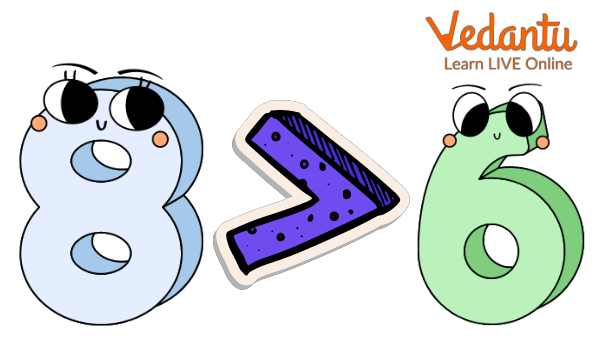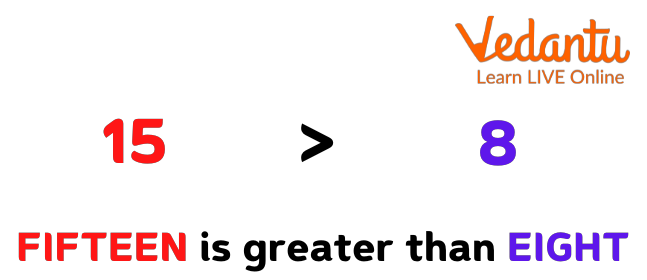




Easy Ways to Compare Numbers and Objects in Math
Introduction to What is Bigger
Children in preschool begin to recognize patterns in the world around them. They start to notice when two objects are the same or when one object is larger or smaller than the other.
There are specific terms for comparing size differences. As you engage with the environment around you, introduce your kid to a variety of comparison terms and use them in conversation. Make use of materials found about the house, as well as your own bodies, toys, paper, writing instruments, and scissors.
What is Greater Than?
Greater than is a mathematical word that is used to compare two values and to assist build a connection in which one term is greater than the other. The sign greater than (>) is used to compare two numbers, with the larger value being presented first.
The greater than symbol is commonly used to compare two values where the first number is greater than the second number or one value is greater than the other. A closing angle bracket is an approximation of the larger sign. We can observe its widespread use in descending order, where the larger than a sign is used to organise numbers from greatest to smallest.
Symbols for More Than and Less Than
The alligator's mouth is always towards the larger value when compared to other numbers to signify the greater worth. The discrepancy between two integers says 6 and 8, maybe represented in two ways, as seen below.
Fun Fact:
The greater than symbol > is sometimes compared to an alligator's jaws. When confronted with a larger quantity, the mouth is wide open.
> is the greater than symbol. As a result, 9>7 means '9 is greater than 7'. The sign for less than is “>”. (greater than or equal to) and (less than or equal to) are two other comparison symbols (less than or equal to).
Don't the "less than" and "greater than" signs resemble a "V" on their sides? Just remember this to recall which way around the and ">" signs go for example BIG > Small.

The less than sign may also be used to indicate the above expression:
The first thing to keep in mind is that the "less than" sign resembles the letter L (the "less than" symbol is "<"). Remember that this symbol looks like an L and implies "less than" when you encounter it.


Tips for Parents
Discuss who in your family is the big, bigger, and biggest.
Take a look at your shoes and discuss which ones are little and which are enormous.
Ask your kid to compare the sizes of plates, glasses, and cups, using the words large, bigger, and biggest to describe the differences.
Make a comparison between your child's hands and feet and your own. Place your hand or foot next to your child's and ask who has the larger hand or foot. Inquire as to who has the smaller hand or foot.
To measure anything around the house, use your hands or feet. "Can you tell me how many steps it takes to traverse the room?" With your hands, measure the height of the refrigerator.
Conclusion
To represent the connection between two numbers, greater than and less than symbols are employed. They are used to assist youngsters to understand numbers and their values by displaying which has a higher value. A mathematical symbol that expresses an inequality between two numbers is the greater-than sign. The larger-than sign is often put between two values being compared in mathematical writing and indicates that the first number is greater than the second number. We will learn about what is greater and their indications in this article.
FAQs on What Is Bigger? Understand Comparison in Maths
1. What are the names of the <> symbols?
The given symbols are known as "Chevron." Keep in mind that the ">" character on your keyboard is a greater-than-less-than symbol, often used as the official Chevron symbol in arithmetic.
2. How to define greater than?
In a comparison between two or more numbers, quantities, or values, greater than can be described as an inequality. When the first or second amount or number is more than the second or remaining quantity or number, this expression is employed.























